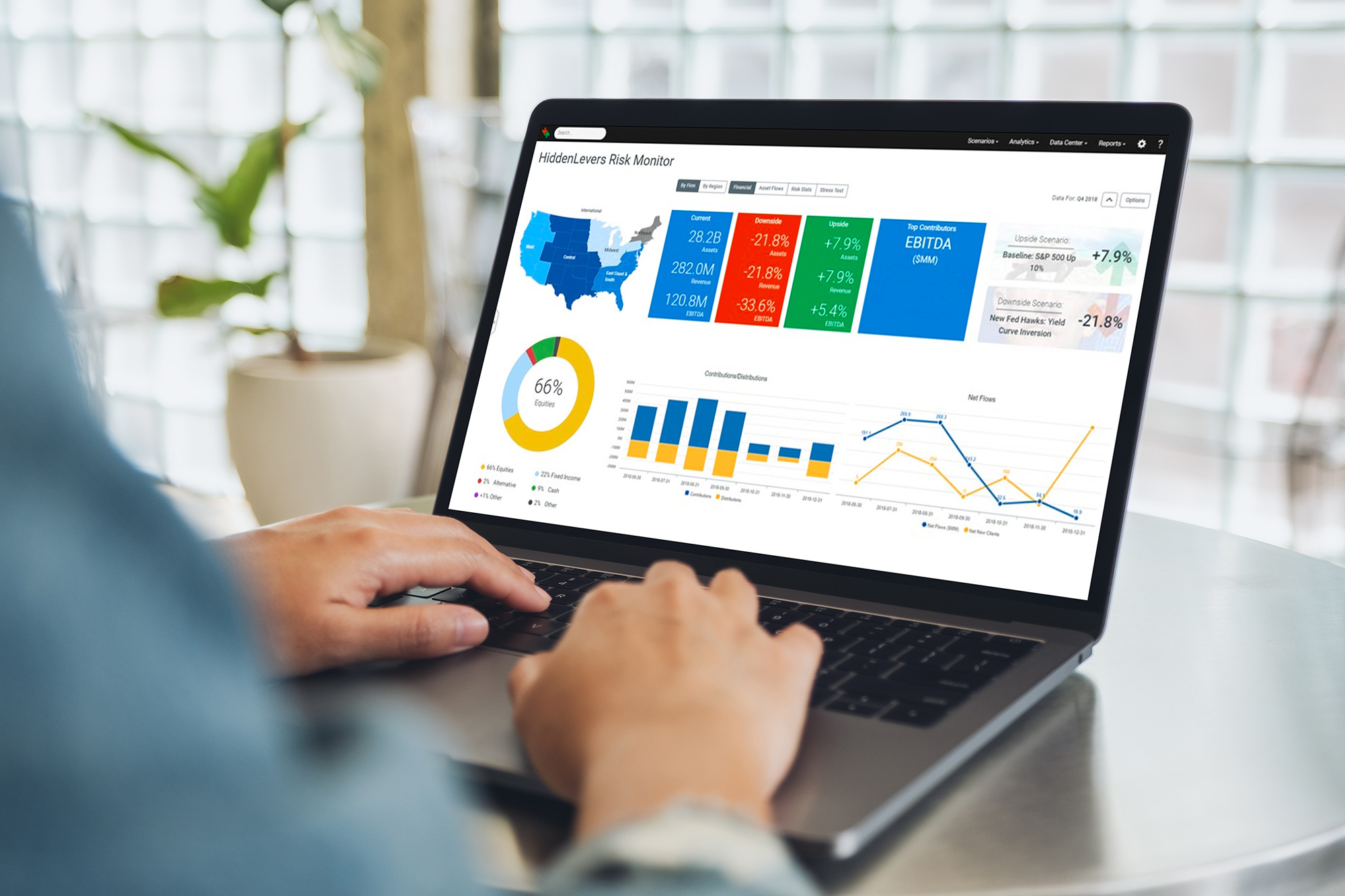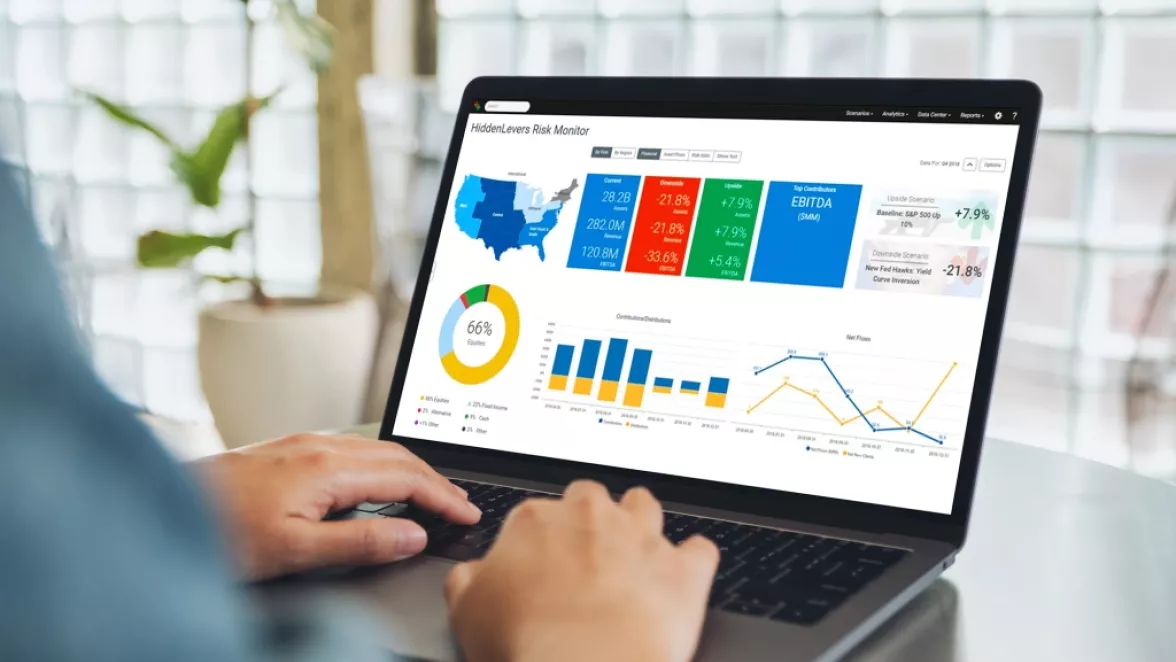
A risk analytics platform can help advisors articulate upside and downside risks to clients and prospects. It can provide leadership with big-picture data for strategic planning. But what about the investment committee–do they need risk analytics?
In short: yes. Investment committees are tasked with setting your investment approach and outlook, so they have a vested interest in making sure you stay aligned with your goals. A risk analytics platform can help your investment committee stay the course and even uncover potential new opportunities. Here’s how.
Measure Your Current Portfolios Against IPS
One of an investment committee’s first tasks is to create guardrails for your investing strategy in the form of an IPS. Once those rules are in place, the committee must ensure you live by them.
You can track metrics to assess your progress and status. Identify a handful of KPIs tied to your IPS. When your investment committee meets, add a KPI checkup to the agenda. Tracking these numbers periodically throughout the year will allow you to spot numbers that deviate from your objectives. Then, you can course-correct throughout the year.
If you do notice a troubling number at the firm-wide level, then it’s time to drill down to find the source of the issue. A tool like HiddenLevers provides the capability to monitor asset allocation drift. You can quickly find the assets that are misaligned with your IPS and redirect those funds to assets that do fit your investing thesis.
See Aggregate Exposure of Your Assets
Your investment committee is also interested in reducing downside risks to align with the risk and return requirements outlined in your IPS. Stress testing current assets is one way to see your aggregate exposure.
Our geopolitical reality is in constant flux, which means your firm’s risk level is a moving target, too. With a robust stress testing platform, you can assess your firm’s potential outcome in many scenarios. Adjust economic levers to create a scenario–one you think is likely or are interested in exploring–then put your assets to the test.
This method allows you to make adjustments proactively as real-world shifts occur. You may rebalance portfolios in response to potential weaknesses or opportunities you notice in running different scenarios.
Sometimes economic levers have surprising ripple effects in other sectors or geographies–stress testing helps you spot those hidden potential outcomes and adjust with the aim of being in the right place at the right time.
Visualize Your Data for Planning and Forecasting
An investment committee is devoted to the long-term health of your assets under management. Developing a deep understanding of the current reality and potential outcomes is crucial if the committee is to make sound decisions regarding the future.
Selecting a tool that allows for robust forecasting helps the investment committee plan ahead. And with a visually-driven tool, like HiddenLevers, it’s easy to communicate these details to all stakeholders–a key to securing buy-in on planning and strategic investment decisions.
An investment committee is charged with making crucial choices regarding strategy and direction for your assets under management. Why not give them a tool that empowers them to make more informed decisions? Risk analytics is the technology that provides insights and forward-looking assessments so your committee can more confidently guide investment decisions now and in the future.
Access to the services presented is provided solely as a service to financial advisors. HiddenLevers does not make recommendations or determine the suitability of any security or strategy. Past performance of a security or strategy does not guarantee future results. HiddenLevers research and tools are provided for informational purposes only. While the information is deemed reliable, HiddenLevers does not guarantee its accuracy, completeness, or suitability for any purpose, and makes no warranties with respect to the results to be obtained from its use.
0789-OAT-5/6/2022




























